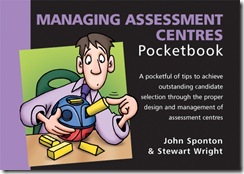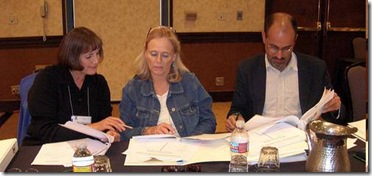Pocketblog has gone back to basics. This is part of an extended management course.
The Pocketblog has covered one part of the recruitment process in great detail: Interviewing. In our three-part series: ‘The New Manager’s Guide to Interviewing’, we covered:
- Preparing the Ground
Increase your chances of success well before the interview.
It covers how to:- Think about the job requirements
- Handle the advertising and admin
- Review applications
- Prepare for the interview
- Getting it Right
Hints and advice for conducting effective interviews.
It looks at:- Questioning
- Social skills
- Responding to candidates’ answers
- Inviting questions
- Polishing your Process
Tips and tricks of the trade, such as:- Fact checking
- The ‘horns and halo effect’
- Psychology
- Data protection
Lets now look at the whole process, as a series of questions.
Question 1: Do you have a vacancy?
Not as obvious as it may seem. In current times, it will serve you well to look at alternatives to just ‘filling a perceived gap’. And if there is a genuine gap, is it a full-time vacancy or should it be either joined with another or be seen as a part-time role? If there is a vacancy to fill…
Question 2: What shape is the hole?
What sort of skills, experience, personal traits do you require to make the very best appointment? Consult widely on this and consider a range of perspectives, before drawing up a job description and person specification, against which to recruit. Review your documents with some further people to confirm that your expectations are reasonable. If your person spec requires Wonderwoman or Superman, then think again: they may not be available at the moment.
Question 3: Do we need to recruit?
Before considering a recruitment process, think about the pros and cons of appointing from among ‘nearby’ staff. This can be quicker, less expensive, and lower risk. But it can also entrench biases and unproductive habits. This is a difficult decision and needs to be made in the context of internal policies and external regulation. If you do choose to recruit…
Question 4: How will we find the best applicants?
Will you do a search for the right people, or will you advertise and hope they find you? Will you search or advertise internally, externally, or both? What media will you use to advertise and what will your advert contain? How will you portray your organisation in general and the role in particular? Then you need to create the advert, or the search brief.
Question 5: What process will you put your applicants through?
The quality of your process will determine the quality of your decision at the end of it – and therefore the result. The process needs to give applicants every opportunity to show all of the assets they could bring to the role, so you can identify who offers the most. It also needs to ensure that the best applicant will want the role at the end of the process. Recruitment is sales. The process will doubtless have stages:
- a long list of good applications to be reviewed in depth
- a shortlist of applicants to go through some form of interview or selection process
- a small final list of excellent candidates to go through a last stage before decision-making
Question 6: How will you close the deal?
When you get the right candidate, you need to notify them, negotiate terms like salary and start date, and then notify other candidates. Do this well and unsuccessful applicants will still want to work for you. Get it wrong and they will be glad they failed and tell everyone they know.
Question 7: How will you welcome them on board?
This is where recruitment becomes employment – and we will look at the induction process next week.

Three Pocketbooks you might like:





